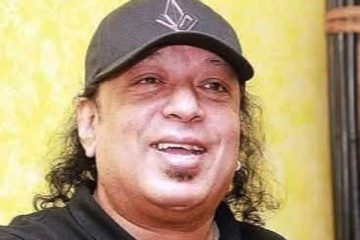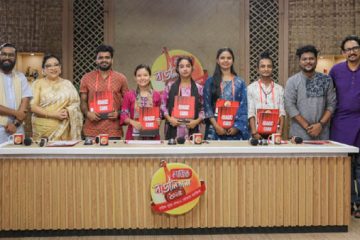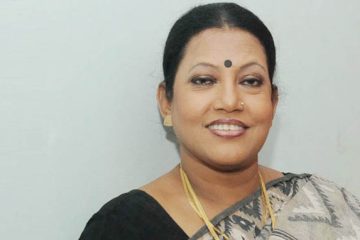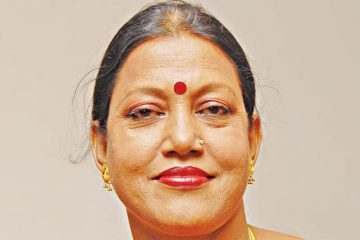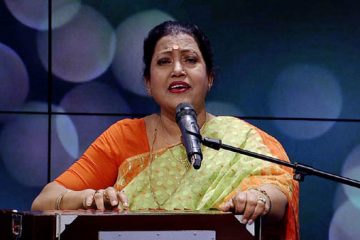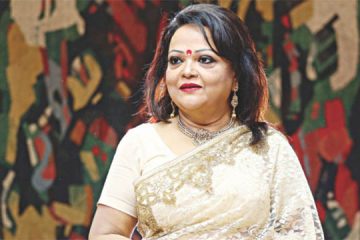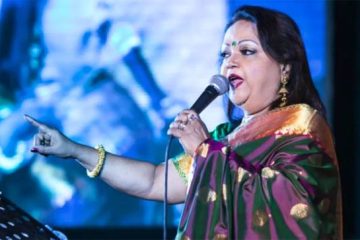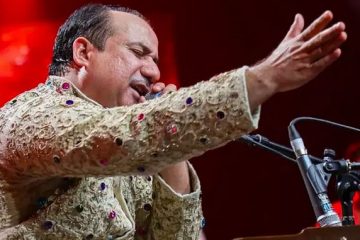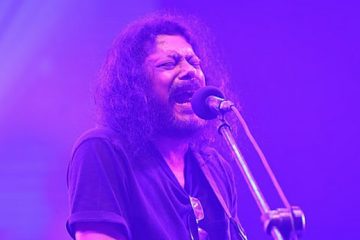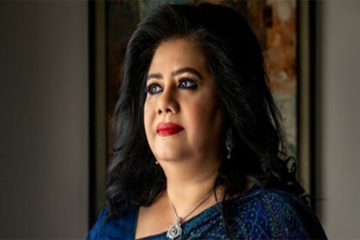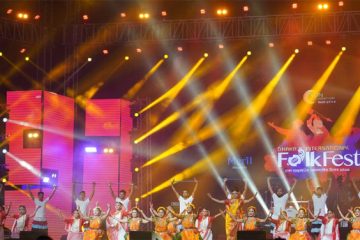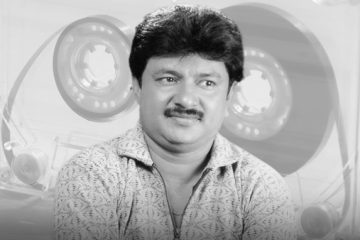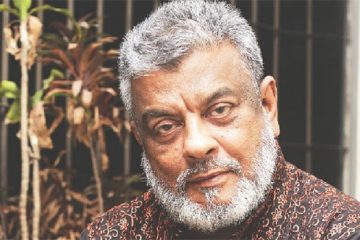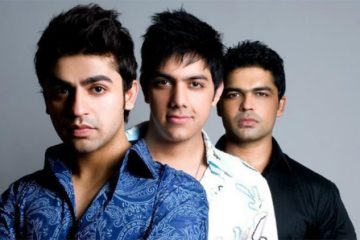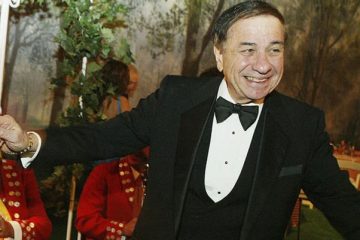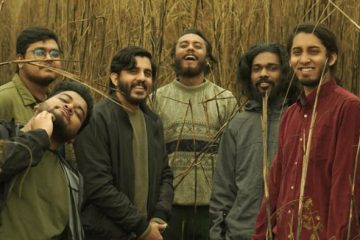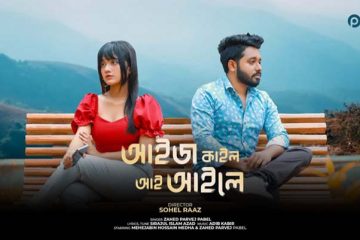Tête à tête with Akhtar Jahan
 “I’m Akhtar Jahan, a singer, and a have a band in Australia,” read the cryptic text message. That got me thinking — could this be the same Akhtar Jahan with a remarkable voice, whom I had last heard at the Chhayanaut programmes just before the start of the Liberation War? When she confirmed my guess, I agreed to meet her to catch up and talk about her long music career.
“I’m Akhtar Jahan, a singer, and a have a band in Australia,” read the cryptic text message. That got me thinking — could this be the same Akhtar Jahan with a remarkable voice, whom I had last heard at the Chhayanaut programmes just before the start of the Liberation War? When she confirmed my guess, I agreed to meet her to catch up and talk about her long music career.
“Man proposes and God disposes,” said Jahan, fondly known as Safa. “I always wanted to stay in my own country to pursue music but I had to settle abroad during the Liberation War.”
“Music was always my passion. When I was hardly six, I joined Mukul Fauj where Sanjida Khatun and Abdul Latif taught us to sing. While studying in Quamrunnessa Girls High School I enrolled at the Sunday Music School. There I trained under music exponents Abdul Ahad and Bedaruddin Ahmed. Later I took lessons under the virtuoso singer Laila Arjumand Banu. My father, Md. Hafizur Rahman, was the central minister in the erstwhile Pakistan, and had conservative views while my mother Anwara Begum was the driving inspiration behind my music career. I remember she sang lullabies to me and could play the esraj very well also.
In 1966, Jahan trained with Ustad Munir Hossain Khan. In Lahore, where she studied BA in music, she trained under Ustad Abdur Rahman. In that year, Jahan competed in three genres of music in the East Pakistan Education week and won two gold and one silver medals in folk, ghazal and Rabindra Sangeet respectively. From 1966 she began performing on Dhaka Television.
She completed her Masters in Psychology in 1970 with a first class (first) degree and was appointed to teach Tagore songs at Chhayanaut. Here she came across music director, Ustad Azad Rahman, and decided to resume her training in classical music. “Under him, I recorded some memorable songs for Dhaka Radio, and released my first EMI single of Nazrul songs,” says Jahan.
As the war broke out in 1971, Jahan was forced to leave her country and settle in Australia with her family. “I was lost to the cultural scene, something that I could never have imagined,” said Jahan.
Besides working as a psychologist she became involved in the cultural programmes of Indian and Bangladeshi communities, taking active part in committees, as well, performing, with just her harmonium.
Did she miss the cultural circuit? “I missed the Dhaka cultural scene very much. I got amateur musicians (colleagues, etc) to accompany me during performances. I took training in opera and vocal rendition.
“Soon I got involved in different multicultural festivals in and around Adelaide. I joined the Musicians’ Union of Adelaide. Once a week, I had rehearsals with the musicians, to build the repertoire. Thus we formed different groups: ‘Akhter Jahan & Friends’, ‘Band a La Desh’ and ‘Shoor Jahan’.
“Soon I came across several eminent jazz players and formed a group of my own. Jazz music and our classical music are quite similar since both have scope for improvisation,” adds Jahan.
“It was not until the late 1980s that ABC approached me after a ‘Concert of the East’ organised by MAC (the Multicultural Arts Committee, of which I was a member.
“The ABC commissioned an hour’s recording. I met Keith Preston, a self-taught Buzouki player, who agreed to work with me. I requested Gurmukh, a Sikh amateur tabla player as well. We found a guitarist, who had played with an Indian singer, Daya Singh. We held rehearsals twice a week. I trained the Australian musicians in ragas so that they could accompany me with as much of a sub-continental flavour as possible.
“I called various cultural centres in Adelaide and sent them our resumes to generate interest in our music. The first professionally recorded demo tape included a folk song: This was sent to the producer of one of the multicultural programmes of the ABC in Melbourne, who immediately approached me to interview me, and to commission an hour’s recording of songs.”
Three of Jahan’s CDs, titled “Agey Janle Tor Bhanga Noukaye Chortam Na”, “Mor Beena Othey Kon Shurey Baji” and “Akangkha” will be launched today at the National Press Club with eminent personality Anisuzzaman as chief guest. Tagore exponent Professor Anisur Rahman and noted singer Maleka Azim Khan will be present as special guests.
“A collection of Tagore songs, folk and a mixed album respectively, I was extremely pleased to have directed the music for all 3 CDs,” she says.
“This is a very special day for me,” she added. For someone who has nurtured her musical talent despite such counting challenges, we can only wish her well in her ardent pursuit of music.
-With The Daily Star input

